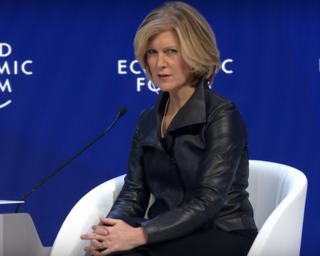A Quote by Michio Kaku
After that cancellation [of the Superconducting Super Collider in Texas, after $2 billion had been spent on it], we physicists learned that we have to sing for our supper. ... The Cold War is over. You can't simply say "Russia!" to Congress, and they whip out their checkbook and say, "How much?" We have to tell the people why this atom-smasher is going to benefit their lives.
Related Quotes
When you say that after World War I there was a pandemic that killed more people than the war itself, most will say: "Wait, are you kidding? I know World War I, but there was no World War 1.5, was there?" But people were traveling around after the war, and that meant the force of infection was much higher. And the problem is that the rate of travel back then was dramatically less than what we have nowadays.
WE MADE A MONSTER OF HITLER, A DEVIL. THAT IS WHY (THEREFORE) WE COULD NOT AFTER THE WAR SAY OTHERWISE. WE HAD PERSONALLY MOBILISED THE MASSES NEVERTHELESS AGAINST THE DEVIL. THUS WE WERE FORCED AFTER THE WAR, TO PLAY ALONG WITH THIS DEVILS' SCENARIO. WE COULD NOT POSSIBLY HAVE MADE OUR PEOPLE CLEAR (TO THEM) THAT THE WAR WAS ONLY AN ECONOMIC PREVENTATIVE MEASURE!
Sometimes the public says, 'What's in it for Numero Uno? Am I going to get better television reception? Am I going to get better Internet reception?' Well, in some sense, yeah. ... All the wonders of quantum physics were learned basically from looking at atom-smasher technology. ... But let me let you in on a secret: We physicists are not driven to do this because of better color television. ... That's a spin-off. We do this because we want to understand our role and our place in the universe.
How much courage does it take to fire up your tractor and plow under a crop you spent six or seven years growing? How much courage to go on and do that after you've spent all that time finding out how to prepare the soil and when to plant and how much to water and when to reap? How much to just say, "I have to quit these peas. Peas are no good for me, I better try corn or beans.
If we [Americans] are a strong people, a united people, why do we always have to hear how great we are? What is this self-love? Where does this come from? It got worse, because after the war we thought we'd won it. That's the first myth. Frankly, Russia won it. The Soviet Union sacrificed far greater form than anyone else to win that war. Secondly, we had the atomic bomb. We should not have dropped it on Japan. We did as an example to the Soviets, not to defeat Japan and to save American lives. These are myths that we explode with a lot of research early on.
Since I have an aversion to movies in which people say grace at the dinner table (not to the practice but to how movies use it to establish the moral strength of a household), the opening night montage of Sunday-night supper in one home after another in Waxahachie, Texas in 1935 - a whole community saying grace made me expect the worst.
'Kiss Land' is the story after 'Trilogy'; it's pretty much the second chapter of my life. The narrative takes place after my first flight; it's very foreign, very Asian-inspired. When people ask me, 'Why Japan?' I simply tell them it's the furthest I've ever been from home. It really is a different planet.
Russia does continue to battle us in the U.N. time and time again. I have clear eyes on this. I'm not going to wear rose-colored glasses when it comes to Russia, or Mr. (Russian President Vladimir) Putin. And I'm certainly not going to say to him, I'll give you more flexibility after the election. After the election, he'll get more backbone.
After we had conducted thousands of experiments on a certain project without solving the problem, one of my associates, after we had conducted the crowning experiment and it had proved a failure, expressed discouragement and disgust over our having failed to find out anything. I cheerily assured him that we had learned something. For we had learned for a certainty that the thing couldnt be done that way, and that we would have to try some other way.
Why would anybody connect to someone who has everything going for them? It's the person who has faults that people want to connect to. So people identify with certain insecurities on stage and just by me talking about my diabetes people come up to me after the show and tell me "Gabe, my blood sugar is out of control and I feel you". That's the first thing they say, they say "I feel you!".




































